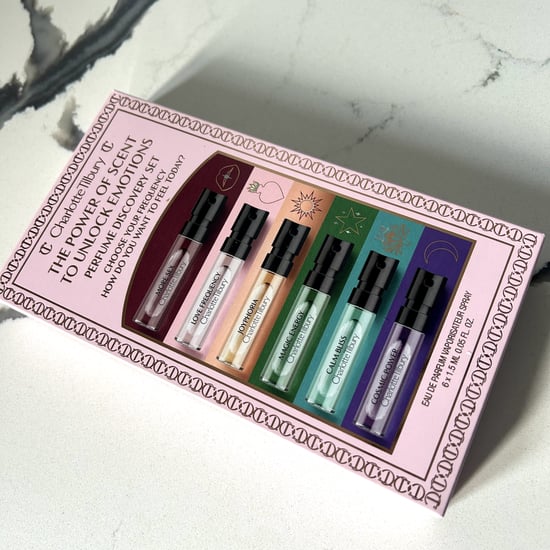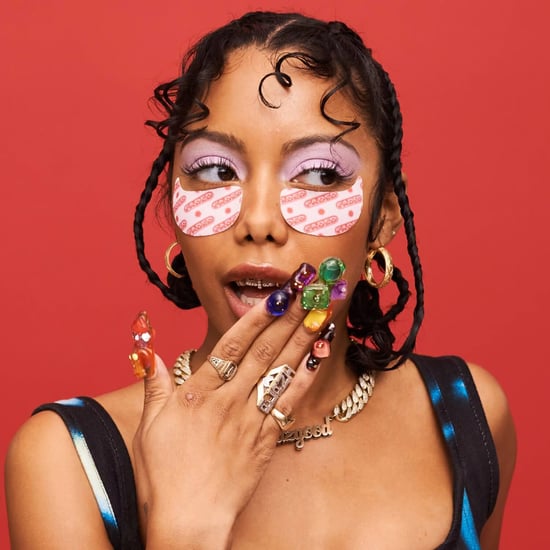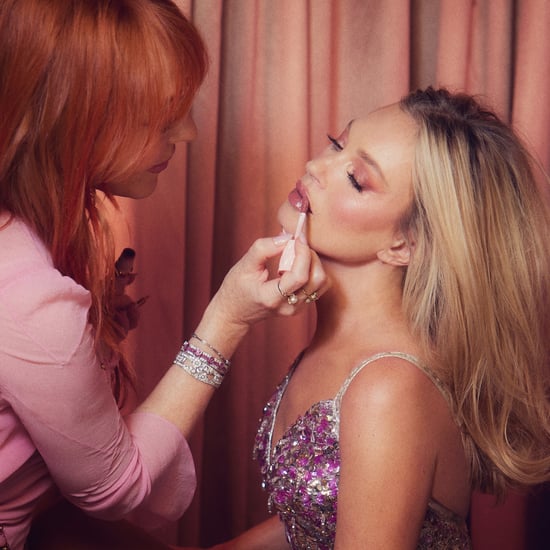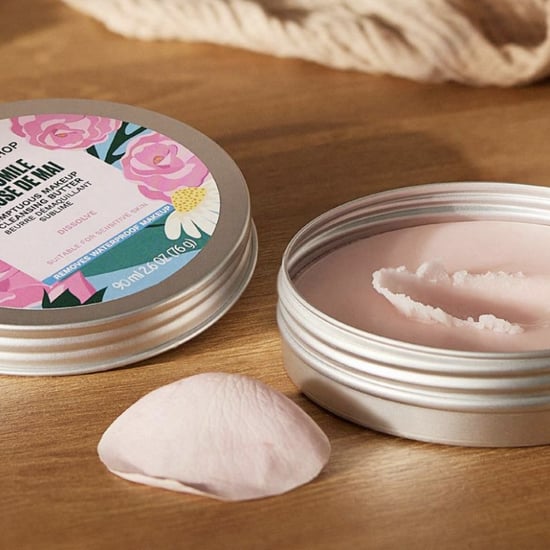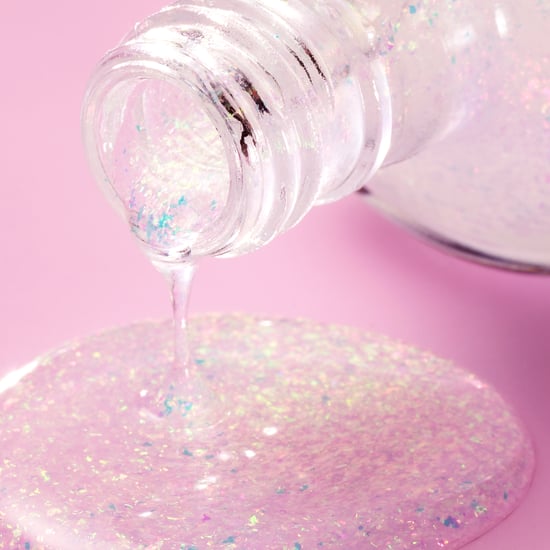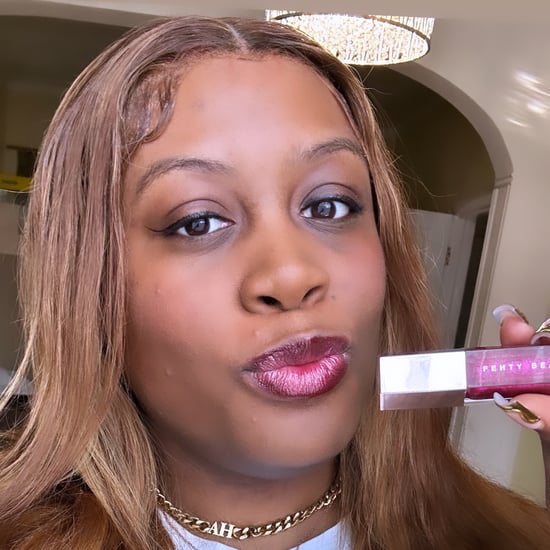What Will Beauty Look Like in the Metaverse? We Investigate.
Beauty and the Metaverse May Collide Sooner Than You Think

Image Source: Getty/Lilly Roadstones
In the last year, there has been an increasing push toward virtual reality in tech. Market research company eMarketer.com estimated that the number of people using some form of extended-reality technology, particularly virtual reality (VR) or augmented reality (AR), made up 18 and 28 percent, respectively, of the US population in 2021. For context, that is 58.9 million people who have used some form of virtual reality and 93.3 million who have used some form of augmented reality. One thing is clear from this information: extended reality is becoming increasingly popular.
It should have been no surprise, then, when Facebook's chief executive officer, Mark Zuckerberg, announced that he believed that the metaverse was "the next generation of the internet" and claimed that the social media company would be gradually heading in that direction over the next few years. But what exactly is the metaverse? Coined in 1992 by science-fiction writer Neal Stephenson, the term "metaverse" by its most basic definition refers to "the concept of a highly immersive virtual world where people gather to socialise, play, and work."
In present-day application, however, the metaverse may take on a slightly different meaning, particularly as we look at it through the lens of beauty. In beauty, whether you're a consumer or a business, the metaverse has the opportunity to open up access to beauty experiences at all levels — without anyone having to step foot outside of their homes. From the way people shop to how beauty brands interact with customers and even how brand activations are approached, we're exploring below what the world of beauty might look like in the metaverse.
What Does the Metaverse Look Like Right Now?
Since the full concept of the metaverse has not yet been actualised, its present-day advantages are only starting to be explored. This is especially true in one particular sector: the virtual ecommerce space.
"When we think about what exists today, augmented reality and live shopping are two examples of early glimmers into the metaverse," Yulie Kwon Kim, vice president of product management at Facebook, says. "Experiences like AR Try On allow us to preview products, like accessories and beauty products, before we buy them so we get a real sense of how products will look on us." Kim adds that she expects the beauty industry will only continue to build on this early success in the metaverse by "leaning into social commerce, building out their presence on Shops, and experimenting with new formats like Live Shopping."
Alongside nontraditional shopping capabilities, beauty brands will be able to use the metaverse to expand their networks and build stronger, more engaged audiences. That means events will no longer need to be exclusive to people living in large metropolitan cities.
"I think brands will increasingly think about how they can launch and activate products beyond an event in NY or LA," Brooke Ozaydinli, creator marketing manager at Instagram and host of the Naked Beauty Podcast, says. As the metaverse rises in popularity, Ozaydinli says that brands will "really build experiential moments that allow customers and their community to preview and experience their product offerings virtually."

Image Source: Brooke Ozaydinli
The Future of Beauty in the Metaverse
The collision of the beauty industry and the metaverse may extend simply to how people show up in the space. Ozaydinli has increasingly become aware of the desire for avatars to be individualised, adding that personalisation in the metaverse can even go a step further to incorporate the talents of people you might not otherwise meet outside of the virtual world.
"We'll have the opportunity for our avatars to be 'flier than us,'" Ozaydinli says. "For example, you may not have the makeup skills to pull off an elaborate eye look, but maybe a creator like Doniella Davy, the lead makeup artist for Euphoria, can offer looks [that your avatar] can try on and wear in the metaverse. A hair artist like Nikki Nelms, who creates elaborate looks for Solange and Janelle Monáe, may offer the opportunity [for avatars] to rock her hairstyles in the metaverse."
My avatar doesn't have skin that needs moisturiser, but do I want my digital skin-care shelf to reflect all of the products I'm using now? One-hundred percent.
Users may also be able to own the digital versions of products that they already have and use at home in order to reflect their real-life tastes. "If I'm going live or doing a 'house tour' of my space in the metaverse, I probably want to show off my skin-care collection I've worked hard to build in the real world," Ozaydinli says. "My avatar doesn't have skin that needs moisturiser, but do I want my digital skin-care shelf to reflect all of the products I'm using now? One-hundred percent."
This may also extend to the products people want to own. "While someone may not be able to afford a Tom Ford fragrance [in real life], maybe they would want one on their beauty dresser in the metaverse."
Even creators that are not affiliated with large-scale beauty brands might also be able to benefit from the breadth of accessibility options that the metaverse has to offer. While metaverse continues honing in on what Ozaydinli calls "interactive experiences that feel closer to what it's like to be in person than our current interactions on our phone or tablet," for independent and nontraditional creators like her fellow podcasters, who rely heavily on self-promotion, that can look like hosting spaces (or "lives") in the metaverse, which would allow their supporters to have face-to-face access to them, regardless of geographic location, in real time. With an industry like social media marketing, where creators are dependent on audience engagement, being able to interact with supporters in such a personal way could make a huge impact.
The Downsides of Beauty in the Metaverse
With the announcement of the metaverse came some expected scepticism, particularly surrounding how inclusive the metaverse will actually be. The tech industry has been heavily criticised for being intentionally exclusive and heavily dominated by rich white men, and some people think that this atmosphere will only carry over into the metaverse. Since the beauty industry continues to make strides in diversity, equity, and inclusion, stepping into a metaverse that does not value the diversity of its users could greatly impact a successful integration.
Though Ozaydinli says she believes that the metaverse is a step in the right direction for inclusivity in terms of geographic location, she adds that the conversation regarding diversity and equity in particular is critical as the metaverse evolves.
"Designers, when building avatars, will need to [accurately] reflect racial diversity, body type, and gender diversity," Ozaydinli says. "[If] you go to set up your avatar and they have 30 styles for straight hair and two for textured, kinky, and curly hair, it sends a pretty clear signal about who was being thought about and prioritised behind the scenes."
This issue can be addressed, and diversity must be top of mind at every stage of building the metaverse. Not only do designers need to be cognizant of diversity when building aspects of the metaverse like avatars, but they also need to be "building teams of coders and designers that are racially and gender diverse themselves," Ozaydinli says.
With potential users keenly aware of how issues surrounding inclusion in the metaverse could manifest, beauty brands in particular must be cognisant of how they plan to be inclusive of their audience regardless of race, class, ability, or geographic location — whether that's holding events that have no geographic restrictions or thinking of ways consumers can buy products without money, such as by being an active participant in their community.
The exploration of the metaverse is both exciting and unnerving. While no one can really say for certain what the future of beauty within this space will entail, early integrations have proven to be a success, so the merge of these two worlds will be nothing short of interesting to watch. As a beauty consumer, you can expect the metaverse to be not only a place to spend time online, but as Ozaydinli predicts, a place to "make the time [spent] online more meaningful."
